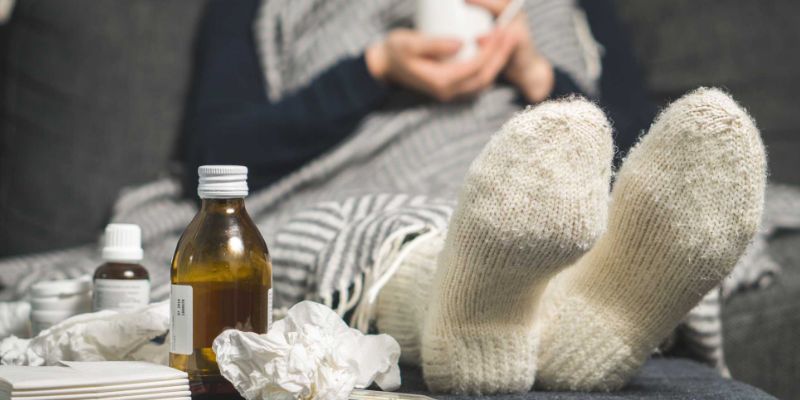Outbreaks of norovirus have more than doubled within two weeks in English schools and nurseries, official figures say.
In the first two weeks of March, there were 113 outbreaks of the stomach bug in schools and nurseries, 50 more than the previous two weeks. An outbreak is defined as a minimum of two cases.
According to the UK Health Security Agency (UKHSA), the rise of the highly infectious vomiting bug is due to increased mixing following the removal of COVID-19 restrictions on February 24.
- Gut bacteria may be linked to brain damage in premature babies, research suggests
- Standard cold becomes ultimate barrier to coronavirus, new research reveals
For those with the illness, it is recommended they stay at home and not attend school or work until two days after symptoms clear.
There were 80 outbreaks of the norovirus in care homes within the two weeks leading up to March 13, with cases rising by around 33 per cent. A rise of outbreaks in care homes normally leads to a rise in hospital outbreaks.
The UKHSA suggests there could be an ‘out of season’ boom in norovirus and other winter bugs after they were suppressed while the COVID rules were in place. The restrictions also resulted in reduced immunity against the illnesses, with health chiefs warning “it is possible that unusual or out of season increases could be seen in the coming months”.
After the removal of COVID-19 restrictions, the number of cases has been increasing, yet over the most recent 14-week spell, cases were around 40 per cent less than the expected number.
Most of the outbreaks – 54% – were in schools, which was expected. This was followed by care home outbreaks at 38%.
The illness can be transmitted through contact with people with norovirus and the surfaces they have contaminated, if you then touch your mouth.
Symptoms usually include nausea, projectile vomiting and diarrhoea, a high temperature, abdominal pain, and aching limbs. These symptoms usually start one or two days after infection, and the winter bug usually goes away after two days.
The NHS suggests that people with the bug drink lots of fluids to avoid dehydration.
Lesley Larkin, the UKHSA’s lead for stomach infections, explained: “Norovirus, commonly known as the vomiting bug, has been at lower levels than normal this season. But as people have begun to mix more, the numbers of outbreaks have started to increase.”
- Effects of ‘chemical dark matter’ found in gut bacteria could aid understanding of cancer development
- Gut bacteria can be vital for neurodevelopment among young boys, new evidence identifies
She continued: “Stay at home if you are experiencing norovirus symptoms and do not return to work or send children to school or nursery until 48 hours after symptoms have cleared.
“Please avoid visiting elderly relatives, if you are unwell — particularly if they are in a care home or hospital.
“Hand washing is really important to help stop the spread of this bug, but unlike for Covid alcohol hand sanitisers do not kill off norovirus, so soap and warm water is best.”




